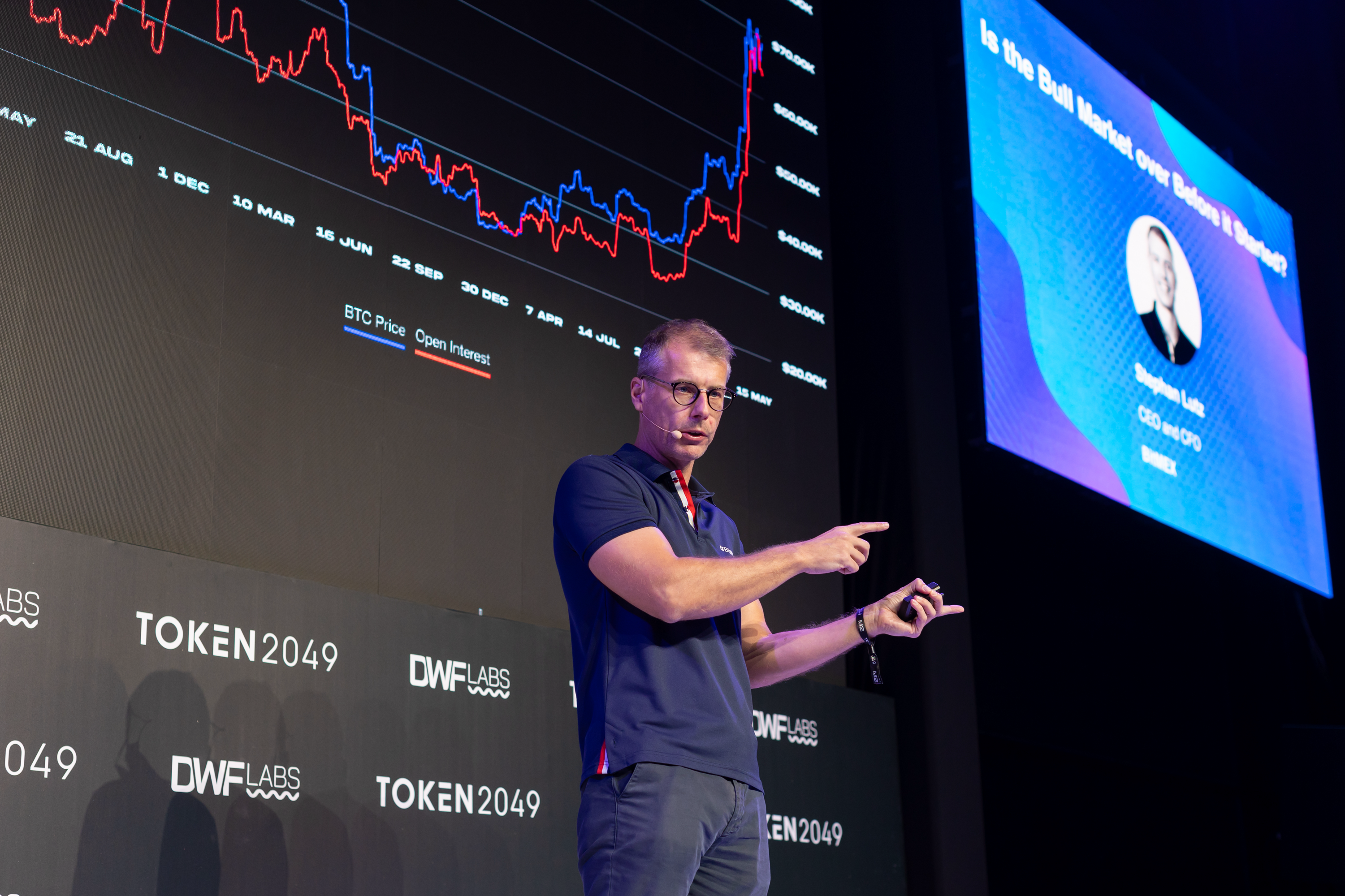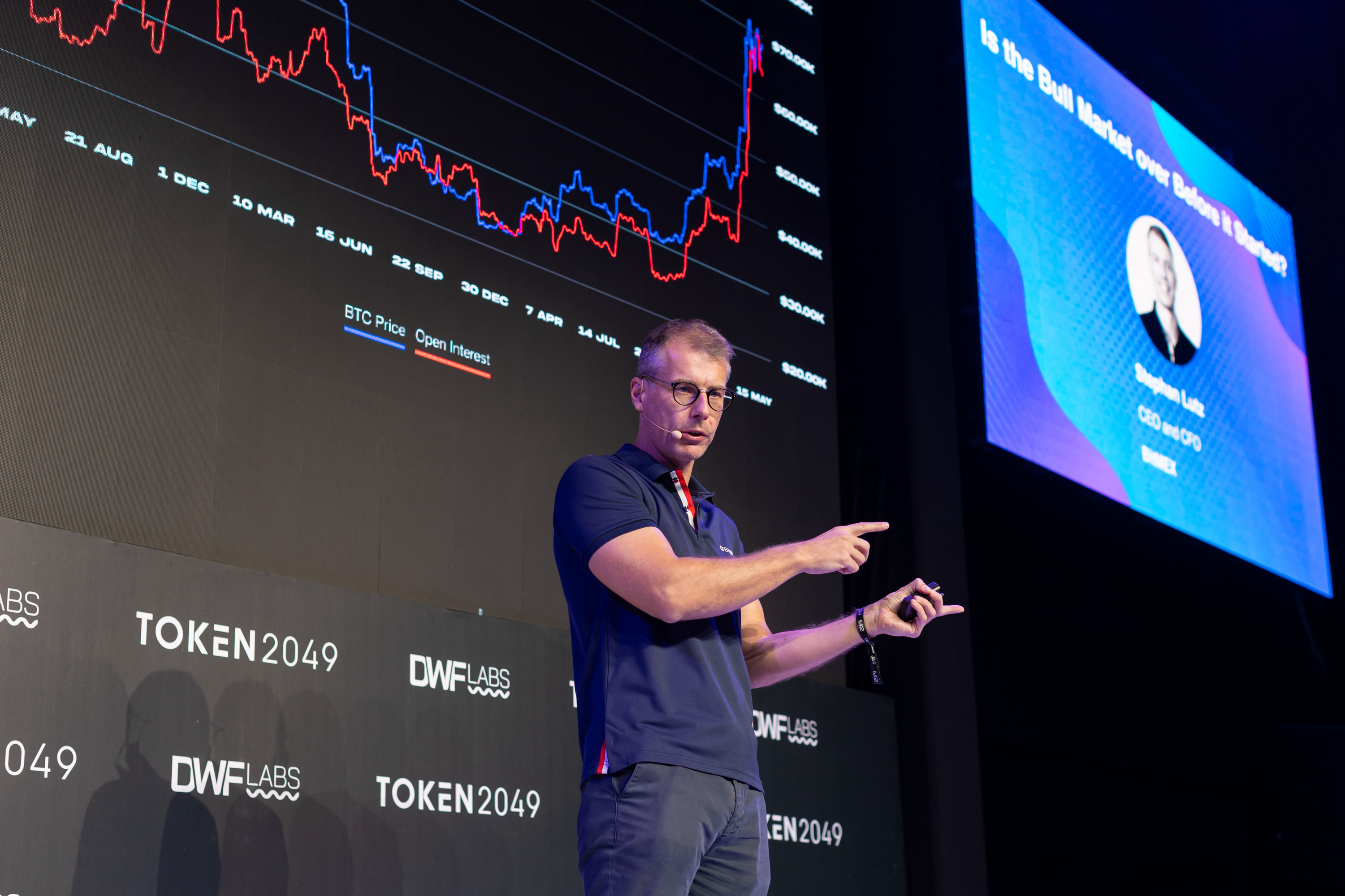As BitMEX celebrates its 10th anniversary, the market still appreciates perpetual swaps


“Good artists copy, great artists steal” is a phrase Apple’s Steve Jobs liked to use to describe blatant copying of Xerox technology.
Fast forward to the Web3 era, and BitMEX CEO Stephan Lutz, who takes up the role in late 2022, has said he is okay with competitors copying the cryptocurrency exchange’s invention of perpetual swaps, the financial product that underpins the cryptocurrency derivatives market. . The more traders have access to the tool, the healthier the market becomes, the logic goes.
“Everyone just followed it because it was open source know-how,” Lutz told CoinDesk. “The whole world is working on this, and it’s the best form of flattery we could hope for.”
Unlike futures, which are contracts to buy or sell an asset at a specific price on a specific date, perpetual swaps have no expiration date and reflect the feel of margin trading. Perpetual contracts act as a series of short-term futures contracts that use funding rates, or payments exchanged between long and short positions, to maintain price alignment with the underlying asset.
Lutz argues that perpetual swaps were a cornerstone innovation in cryptocurrency trading because they solved the fundamental problem of building derivatives in early cryptocurrency market structures.
“We faced counterparty credit risk, and there was no real structure to combine buying and selling,” he said. “Perpetual swaps, backed by funding mechanisms and insurance funds, sparked the entire (futures) trading industry.”
It also allows traders to react to the hyperdrive speeds that cryptocurrencies require.
“If in TradFi we have a seven-year cycle (some investors believe the market operates in this pattern), in cryptocurrencies this cycle is six months,” said Lutz, a veteran of Deutsche Börse, which runs the Frankfurt stock exchange. “We have to react very quickly to new developments.”
Although BitMEX is no longer close to being the largest derivatives exchange by trading volume (this is what happens when large, centralized exchanges like Binance adopt culprits and get into the derivatives business), it still has a loyal following of traders.
One of the reasons for this is that BitMEX does not have its own market making desk. Lutz said it does not do business with its customers.
“Funding rates may vary from time to time because we ensure completely independent price discovery, which is important to maintaining fairness,” he said. “It’s a matter of neutrality.”
During periods of high volatility, especially market downturns, BitMEX often sees its market share surge, sometimes doubling it. Lutz attributes this to the exchange’s loyal cadre of derivatives traders.
another 10 years
Given the speed at which the industry operates, it is sometimes difficult to imagine where cryptocurrency companies will be in 10 years.
Compare the liquidation and liquidation of Lehman Brothers with the relatively quick bankruptcy resolution of FTX.
For BitMEX, Lutz expects the exchange to selectively expand its offerings while maintaining its niche market of Bitcoin-based derivatives.
And maybe over the next 10 years, BitMEX will invent something new and the entire industry will be happy to follow suit.



